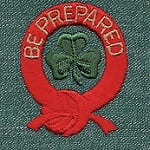 The other day, I had to put my troubleshooting skills to the test. I have to say that it is one of my favorite parts about being involved in production. Having a problem and needing to solve it. I don’t know that I love the pressure of a service about to start while I’m trying to figure something out, but there’s something about the adrenaline and the satisfaction of a successful conclusion.
The other day, I had to put my troubleshooting skills to the test. I have to say that it is one of my favorite parts about being involved in production. Having a problem and needing to solve it. I don’t know that I love the pressure of a service about to start while I’m trying to figure something out, but there’s something about the adrenaline and the satisfaction of a successful conclusion.
I don’t think I’m alone in this aspect of being a technical artist in the local church. Many people I know love pulling off seemingly impossible tasks or coming to the rescue at the last moment, solving a problem only we know how to solve. This is essential to the role we’ve taken on, but it is just the tip of the iceberg when it comes to being the tech person our churches need us to be.
Here are just a few unrelated thoughts I’ve been having about what it means to be successful as a technical artist in the church or anywhere else.
Develop People
You can know all the gear in the world, but if you don’t know how to develop others, you will only go so far. If you are only thinking about the task in front of you, you aren’t looking into the future on how to expand the capacity of your team.
For most in the church production space, what our church needs from us can’t get done without the help of volunteers, and volunteers can’t help if they haven’t been trained in a skill, or given vision for how production can help advance the mission of the church.
When Something Goes Wrong, Communicate
This is a lesson I learned a long time ago and it is something I see get missed by most tech people. When there is feedback or the lyrics are slow or a light goes out, these are all great opportunities to build trust with your leadership.
It seems counter-intuitive, but if you are the first one to bring up how we missed that graphic and we’ll fix it for the next service, your leaders know that you realized there was a problem and you have a solution so that it doesn’t happen again. If your senior pastor needs to point out that something went wrong, he is wondering if you noticed or even care. If you acknowledge a mistake first, you are letting people know that you know it wasn’t right. Acknowledging isn’t enough, you need to have a plan for how it won’t happen again. This is the language of leaders.
Be Prepared
The Boy Scouts have really helped me on this one, so I can’t take full credit. Being prepared is one of the key ways to advance production wherever you are. If you aren’t ready for rehearsal, there is only so much that the people on stage can do to make the service or performance good. If production isn’t ready, it doesn’t matter how prepared other people are because the graphics aren’t correct or the mix is bad or the lighting is distracting.
There is a reason that most touring concerts take time to rehearse ahead of time to get all the cues down and figure out what needs to be on the screens when. They do it so that people who bought a ticket have a great experience. In the church, when you’re dealing with changing content on a week-to-week basis, this is a little unrealistic. But what would it look like for us to be better prepared for next weekend’s service? Isn’t the content of our services worth us being fully ready for rehearsals to start?
When I think about all of the skills required to be a technical director in the local church, it goes far beyond the details of audio, video, and lighting. While these are the foundations for being successful in production, developing people, communicating with leaders, and being prepared are what separate out average production from excellence.










